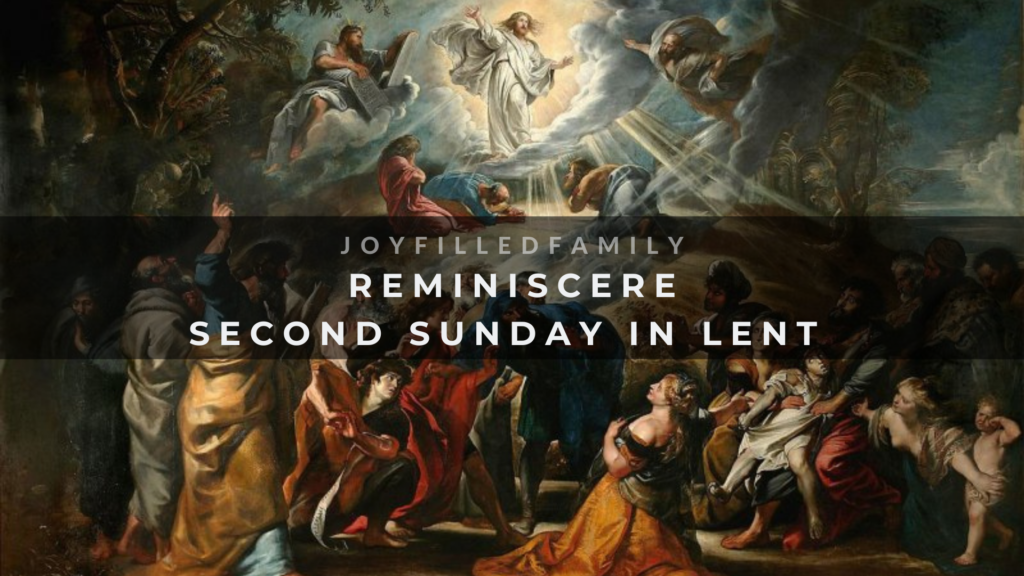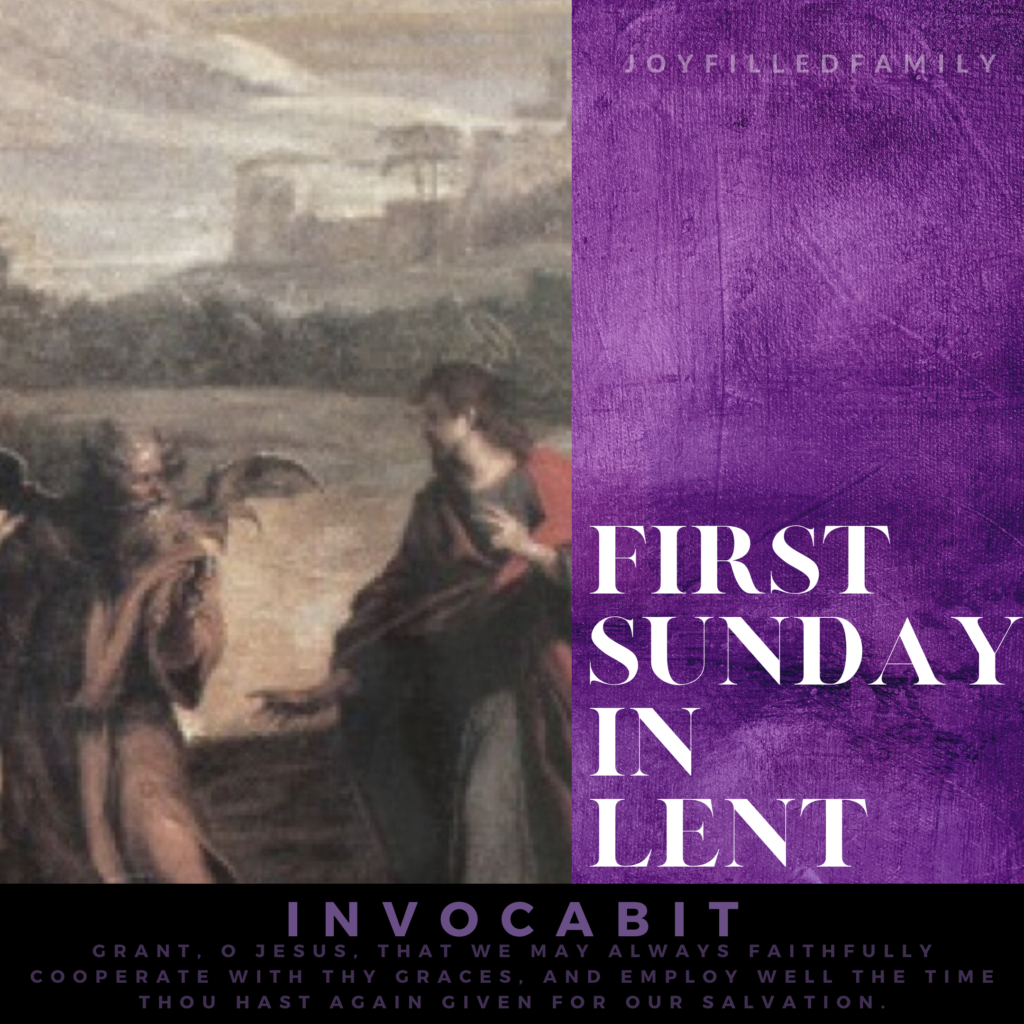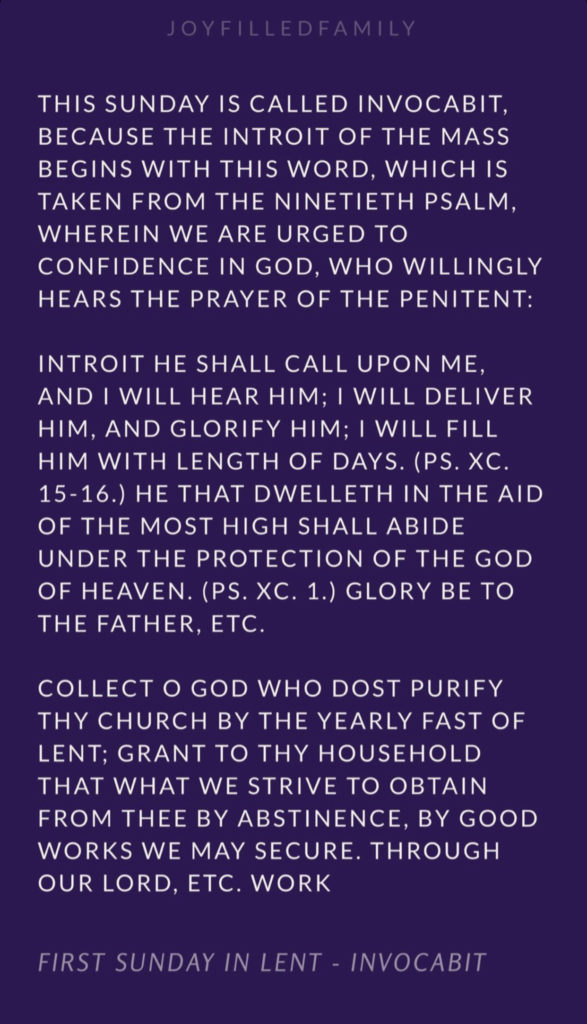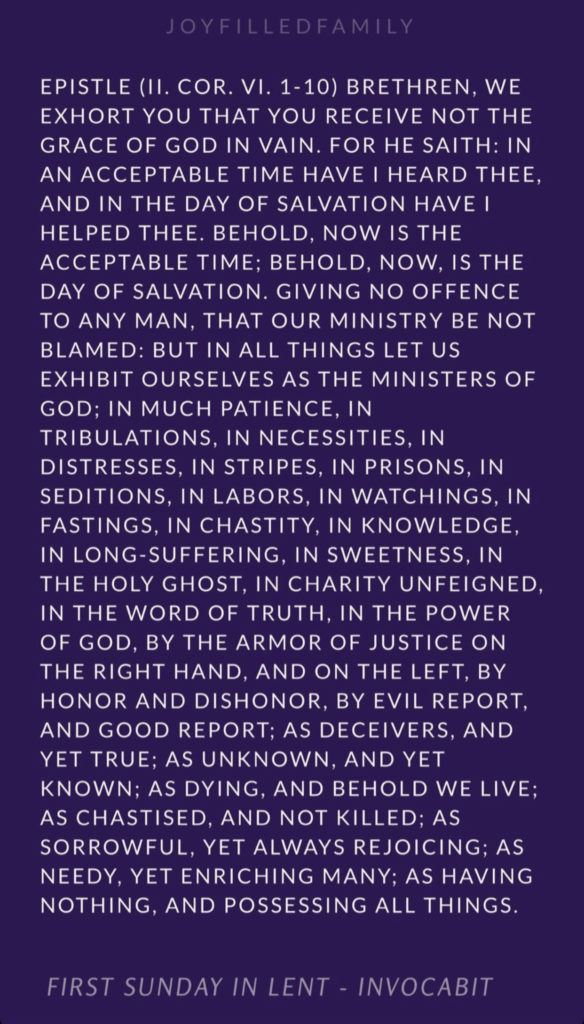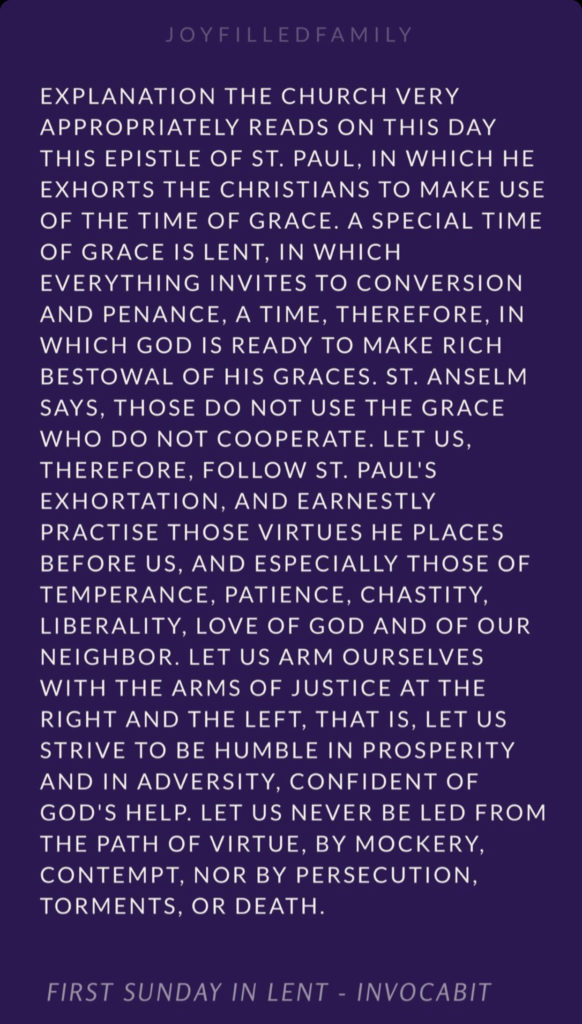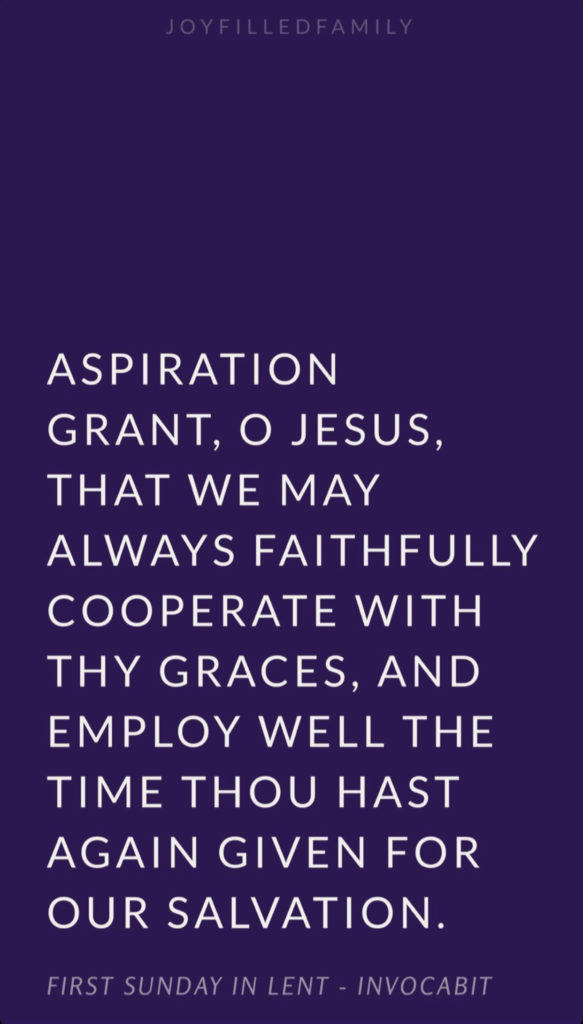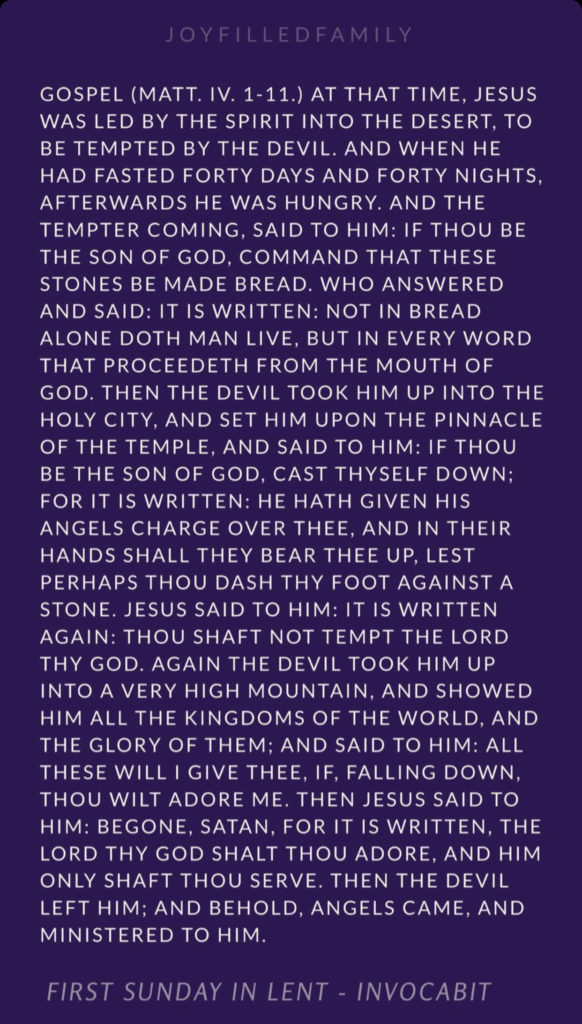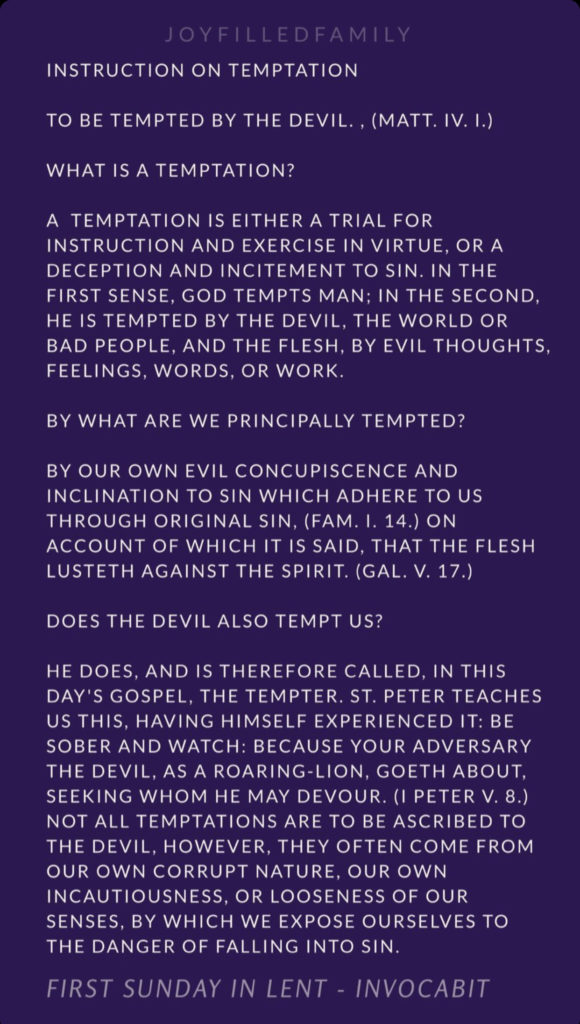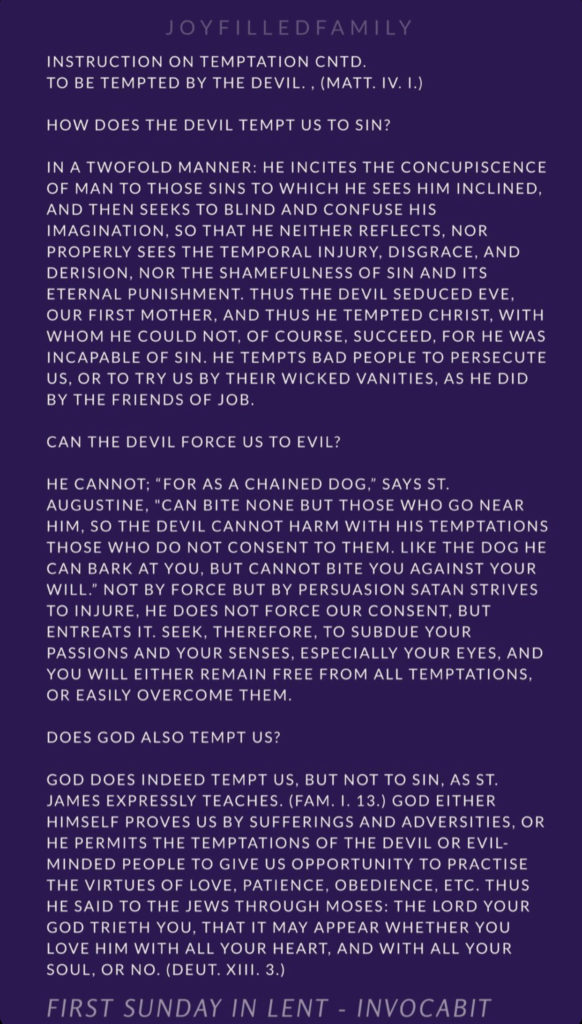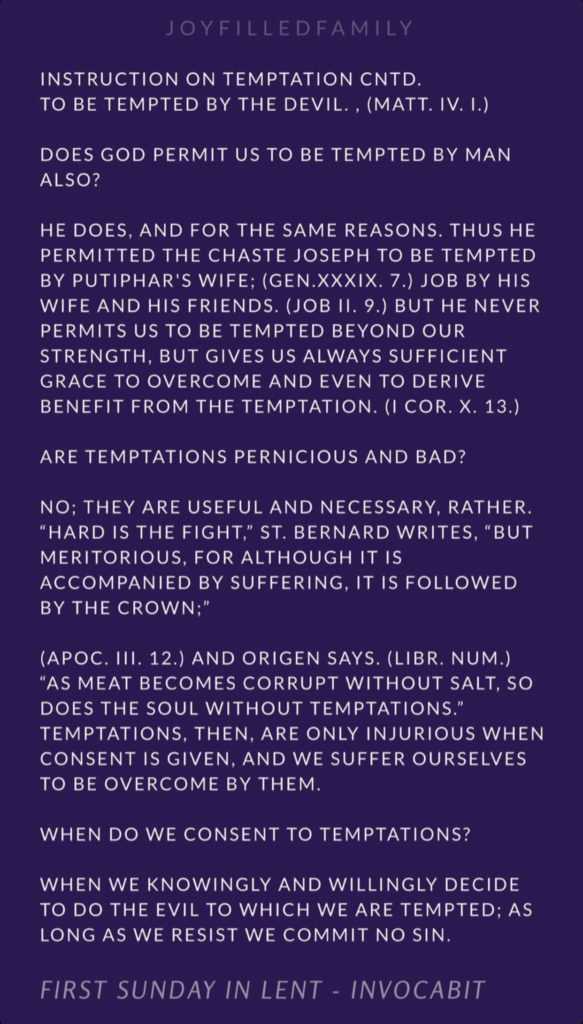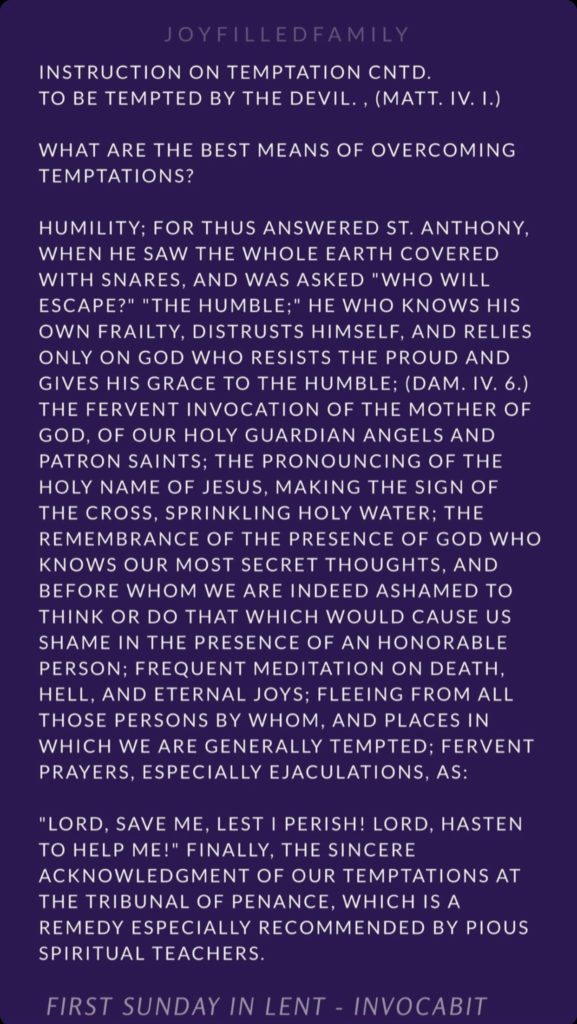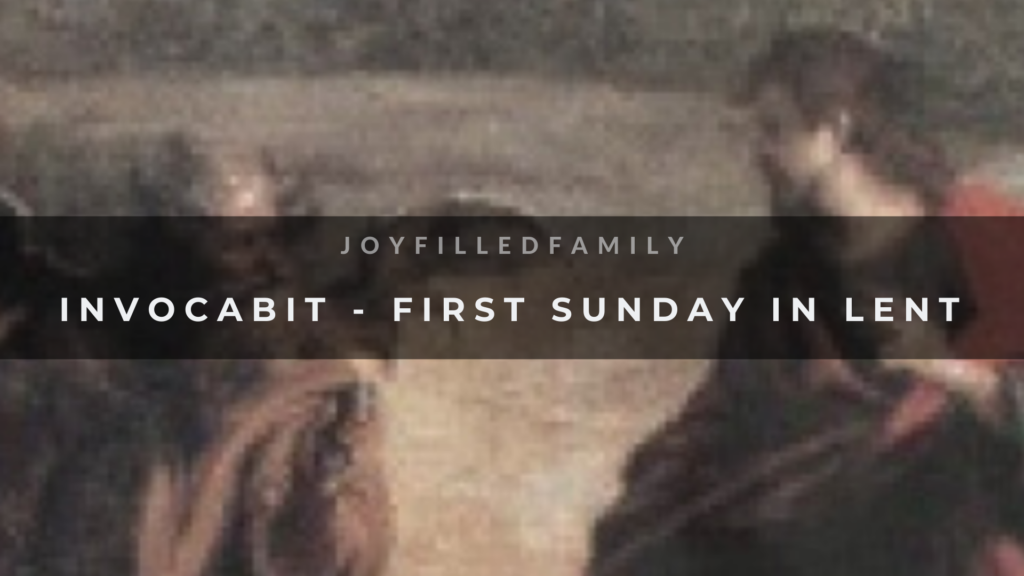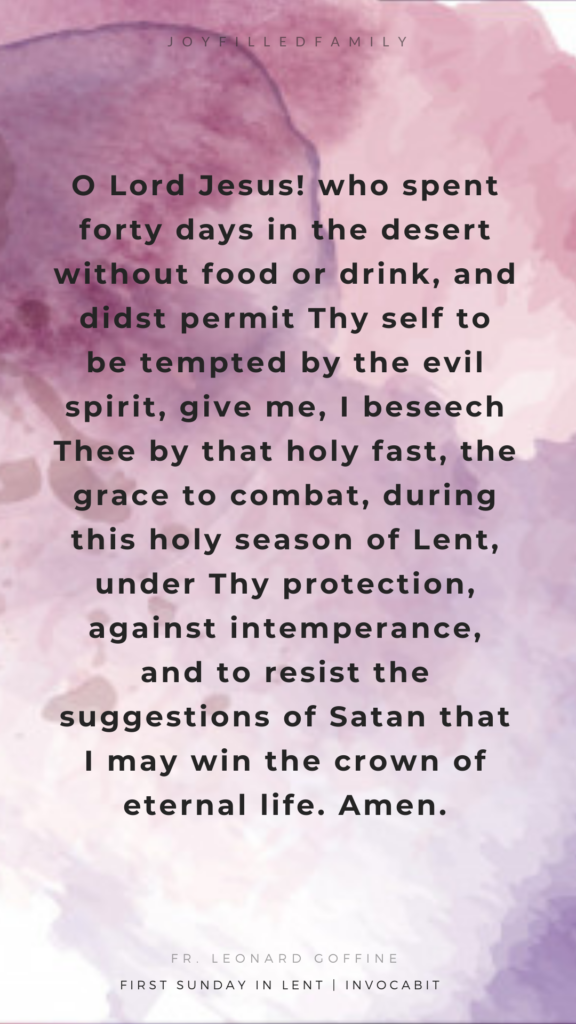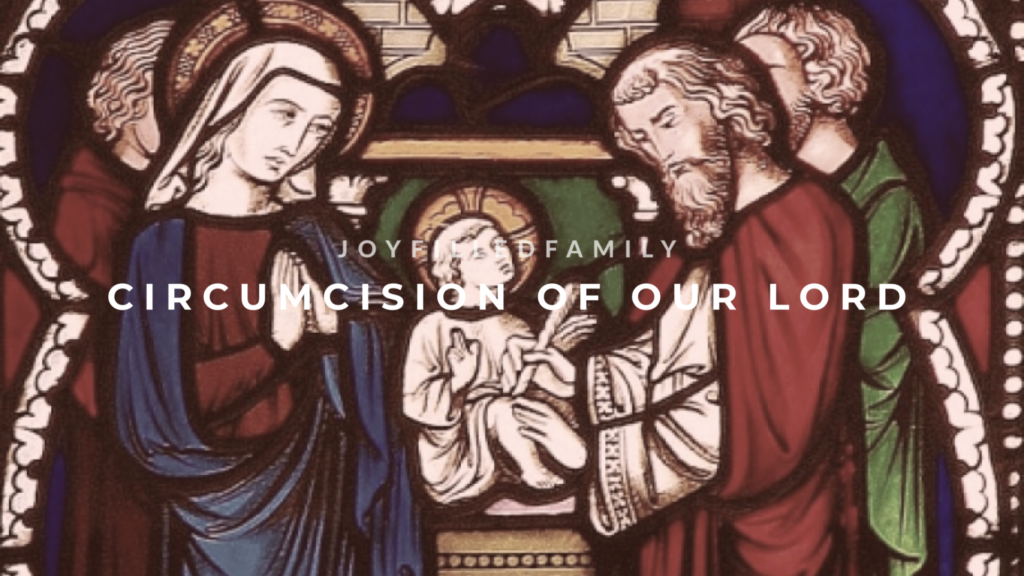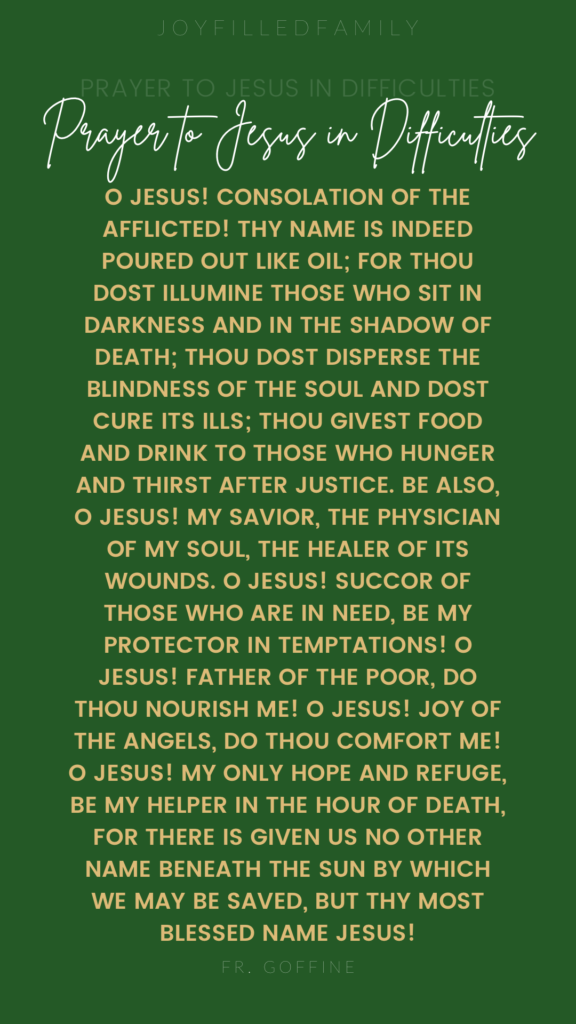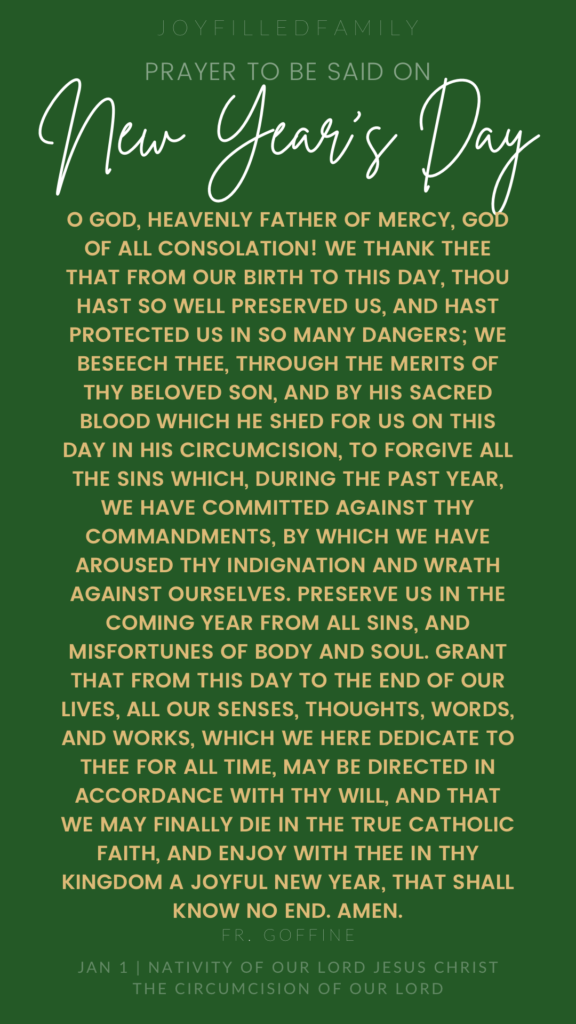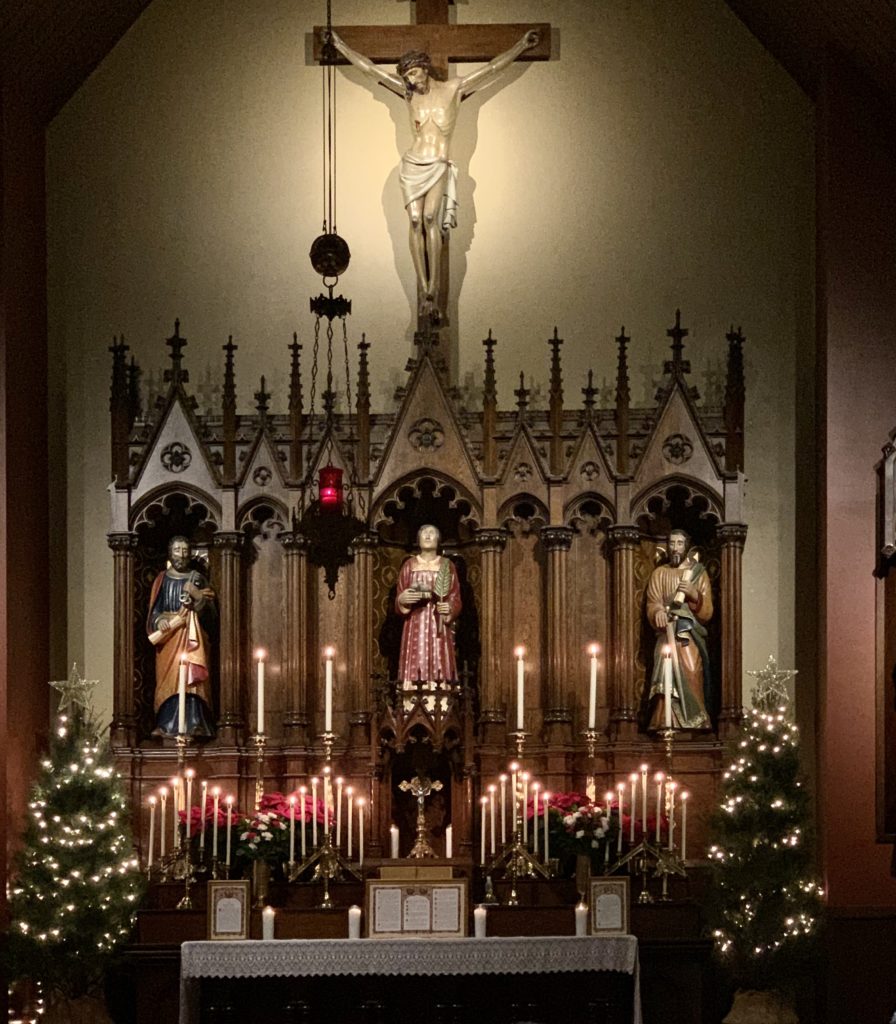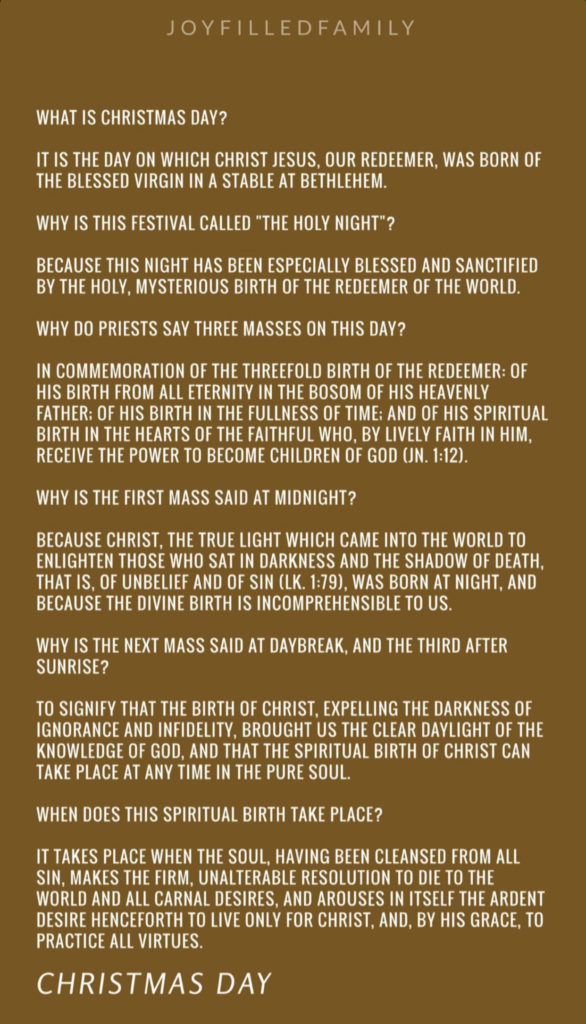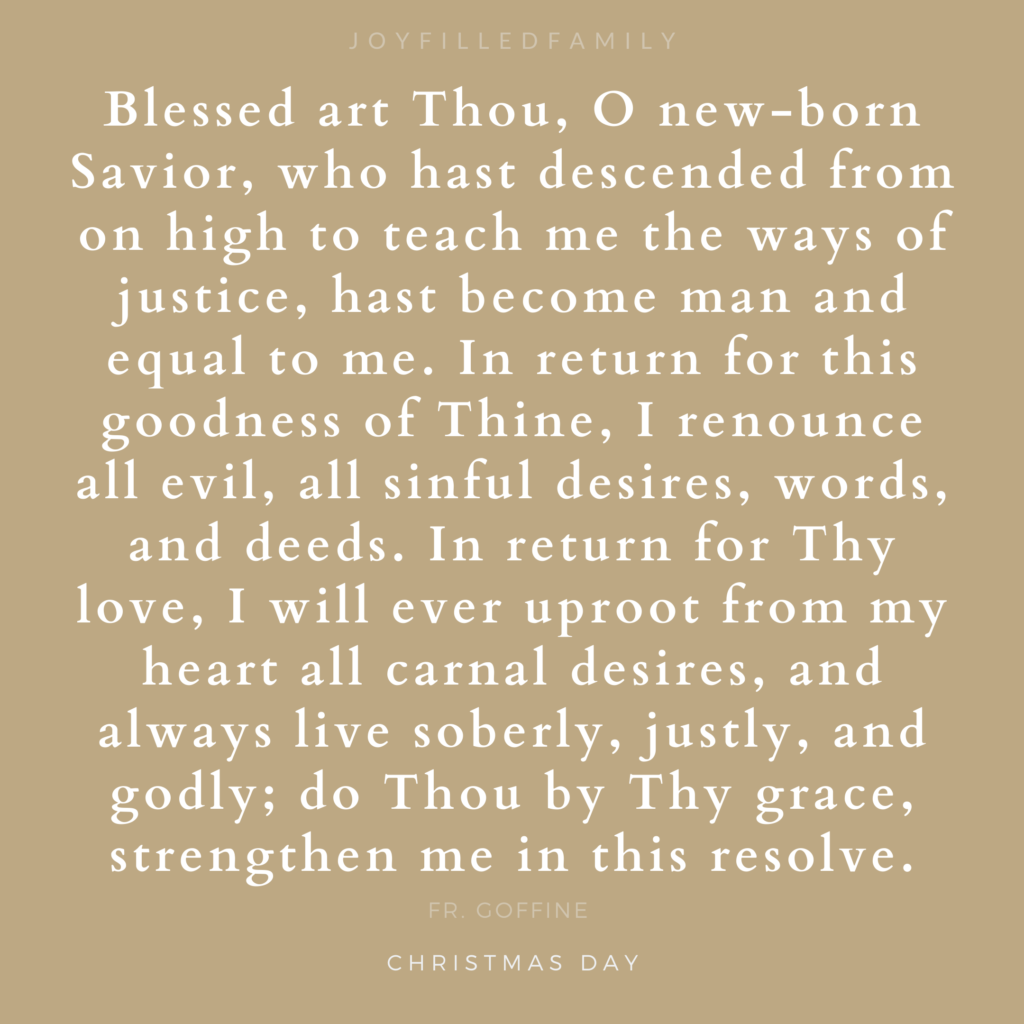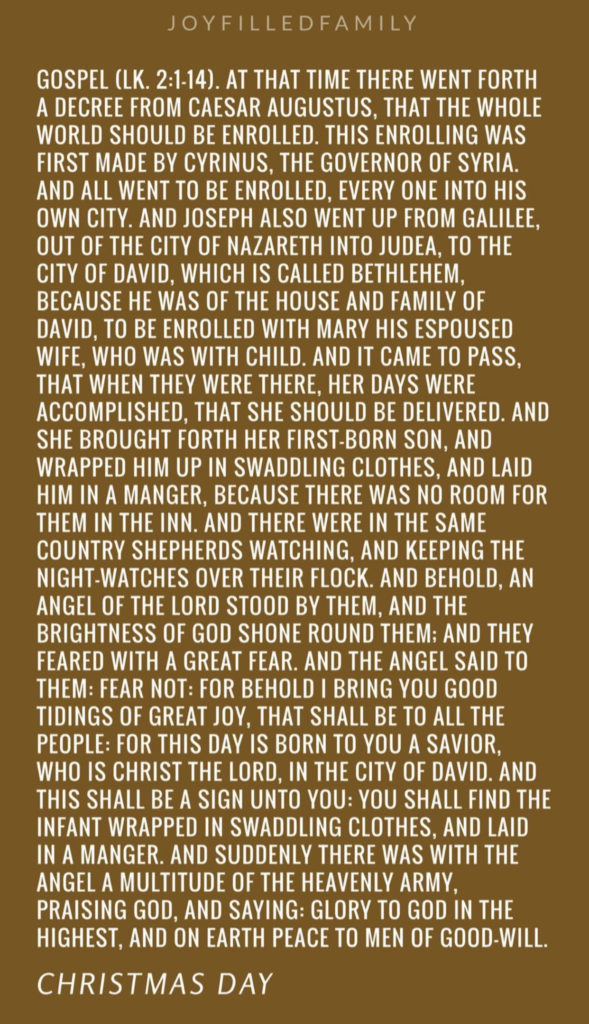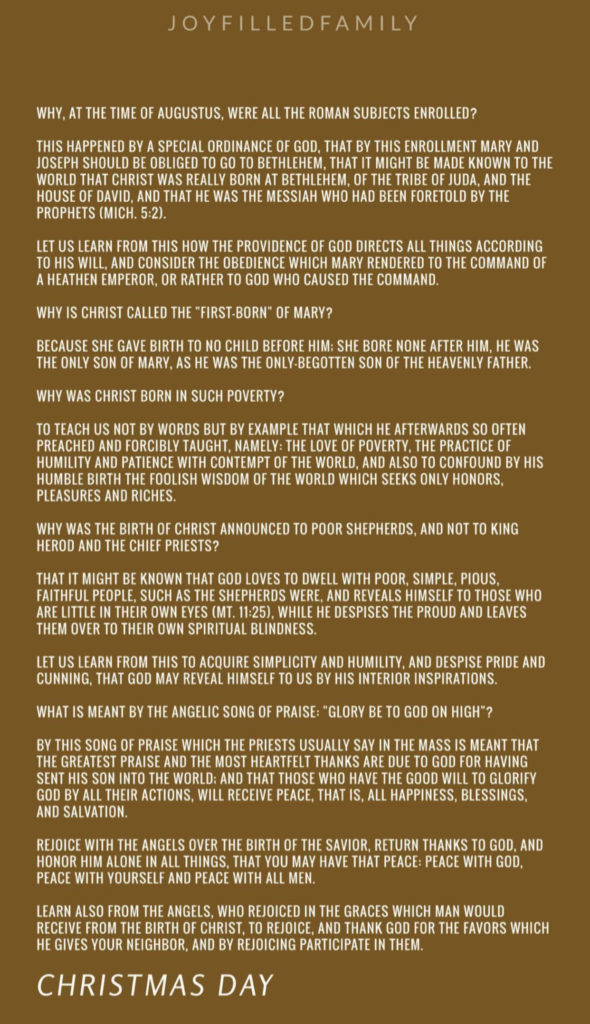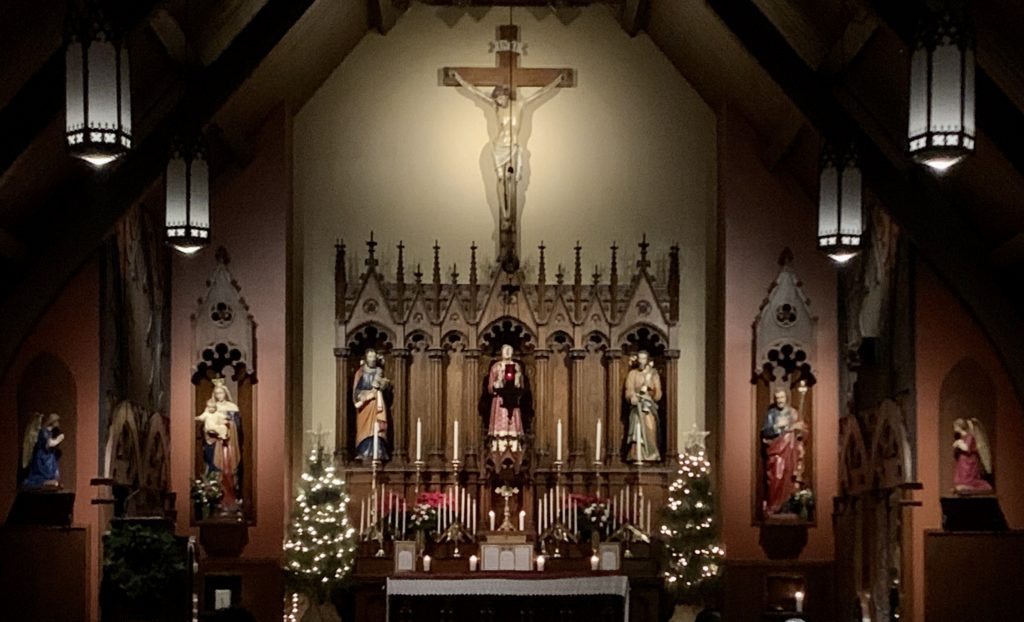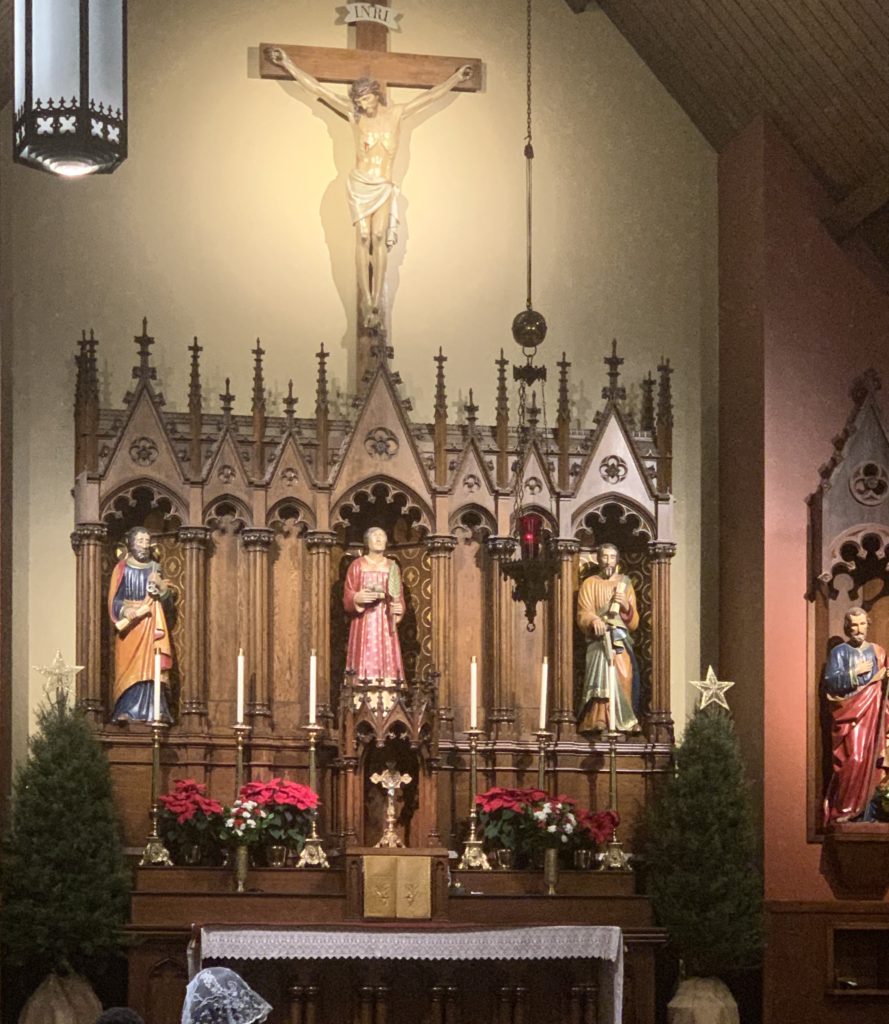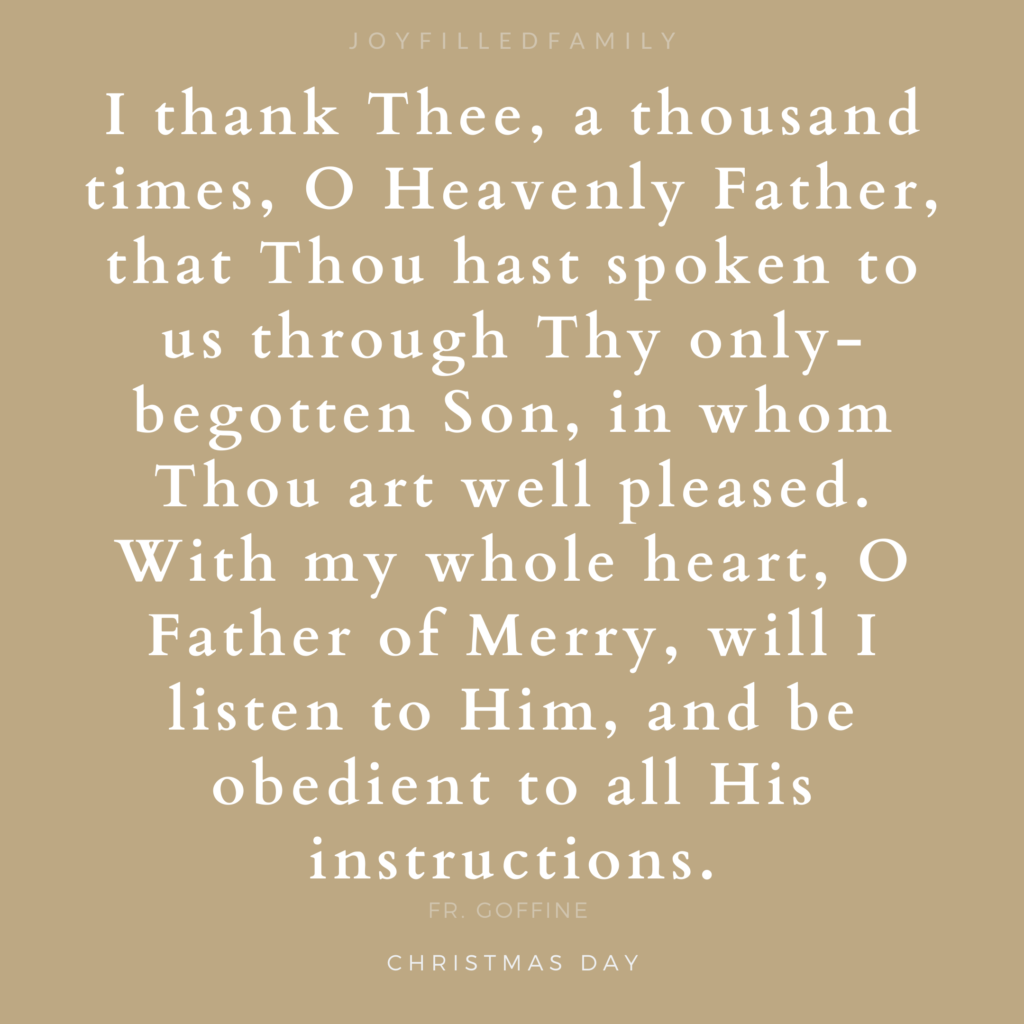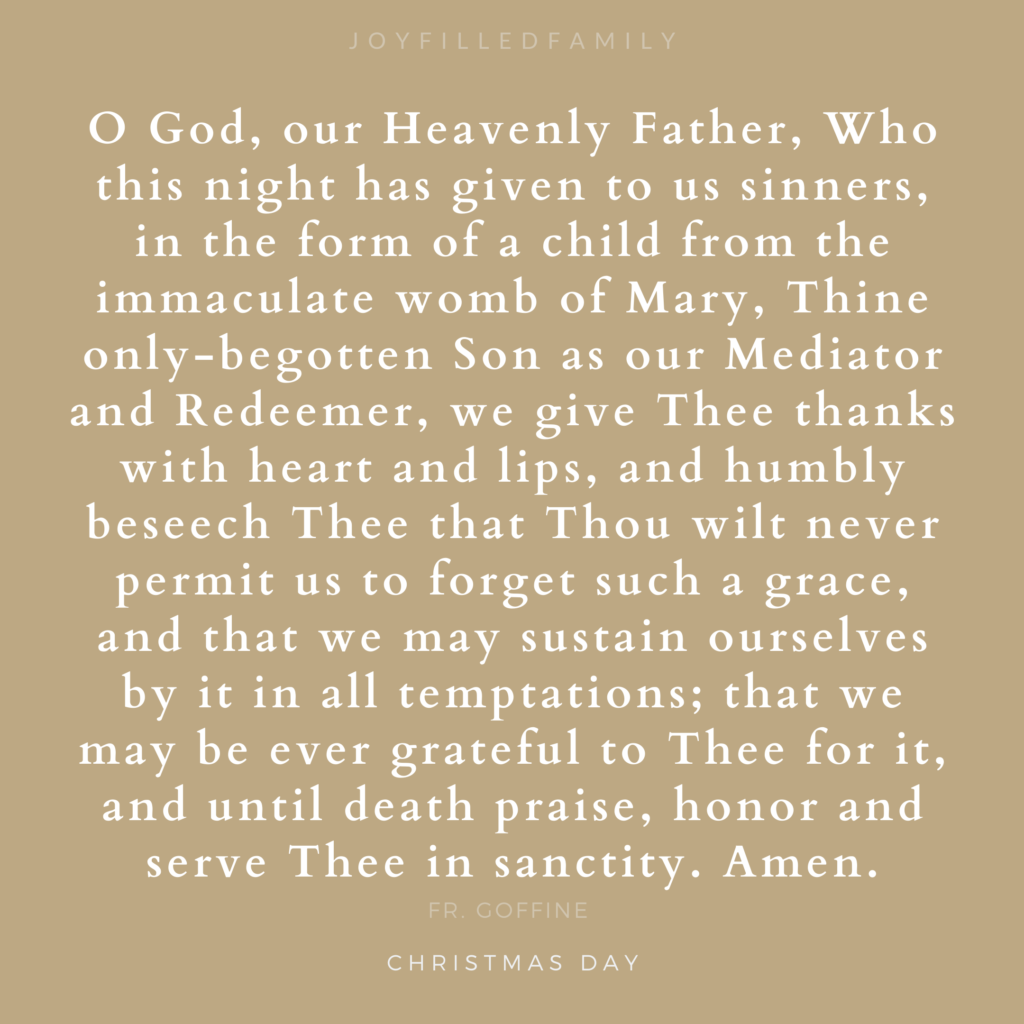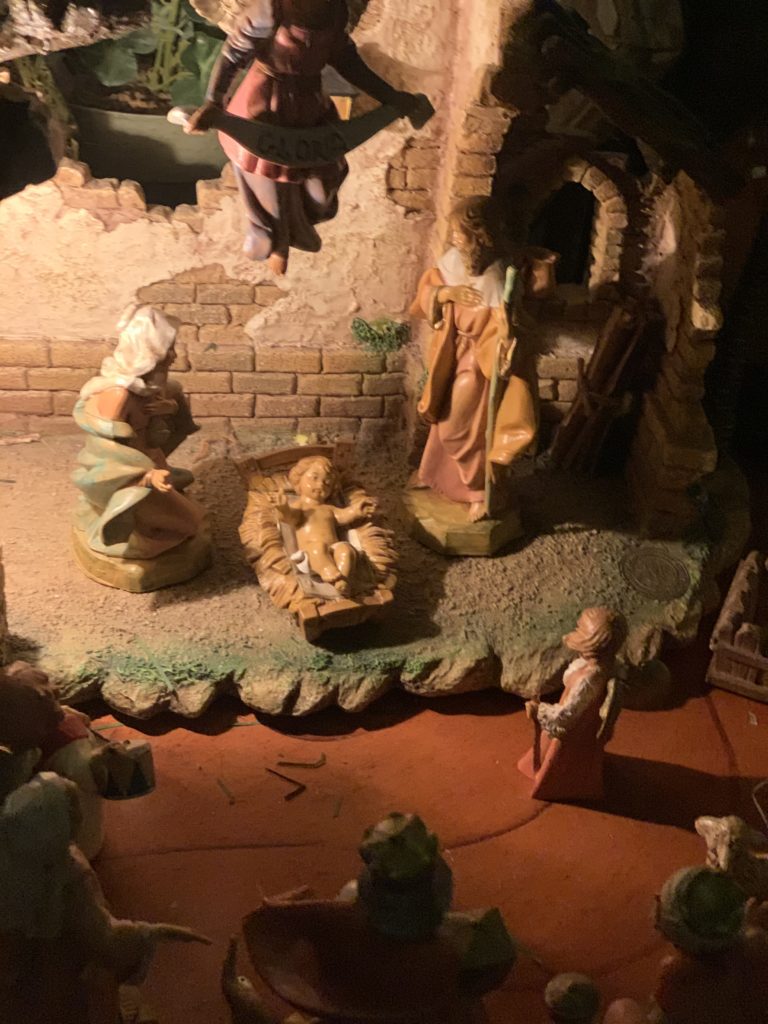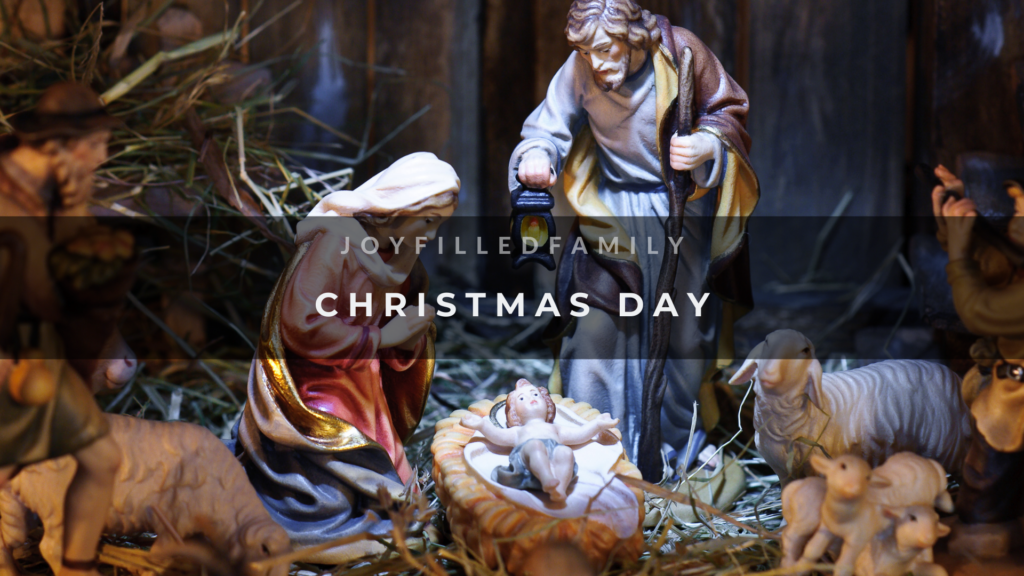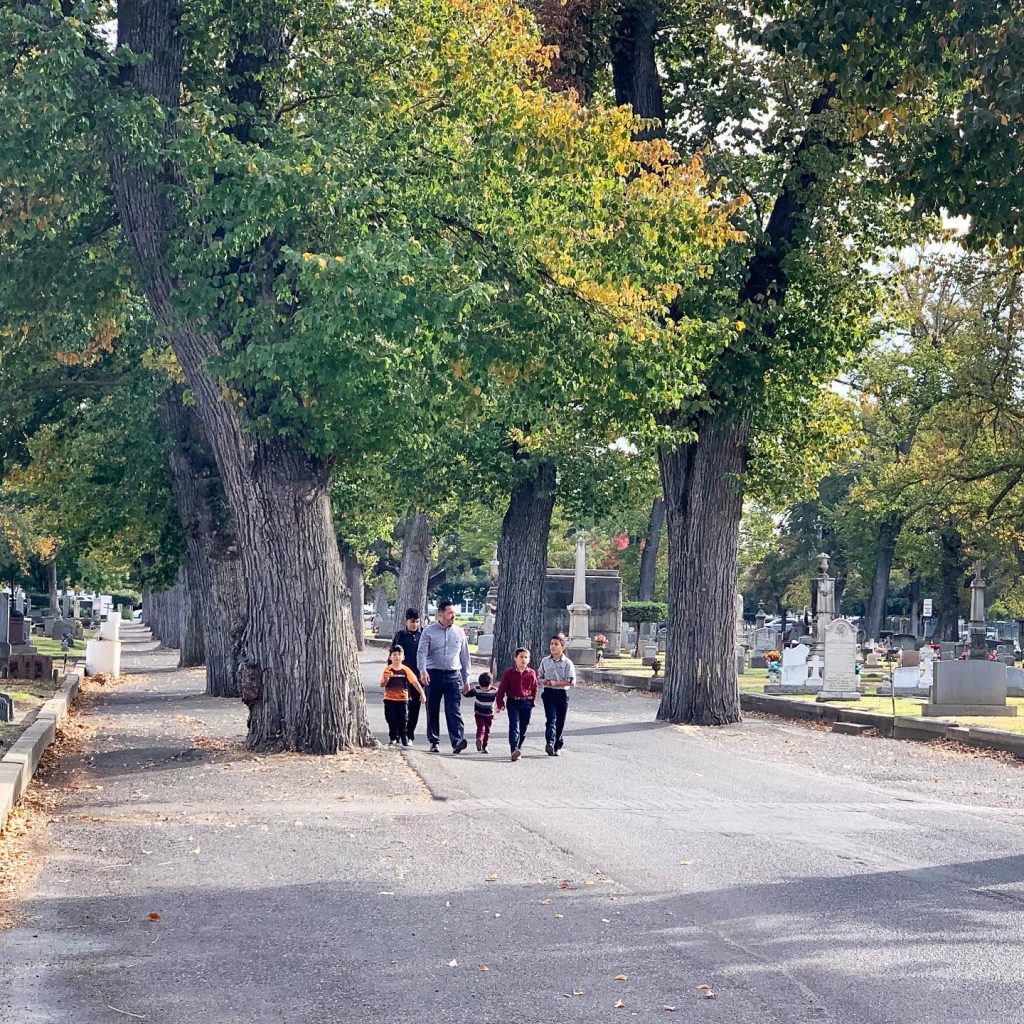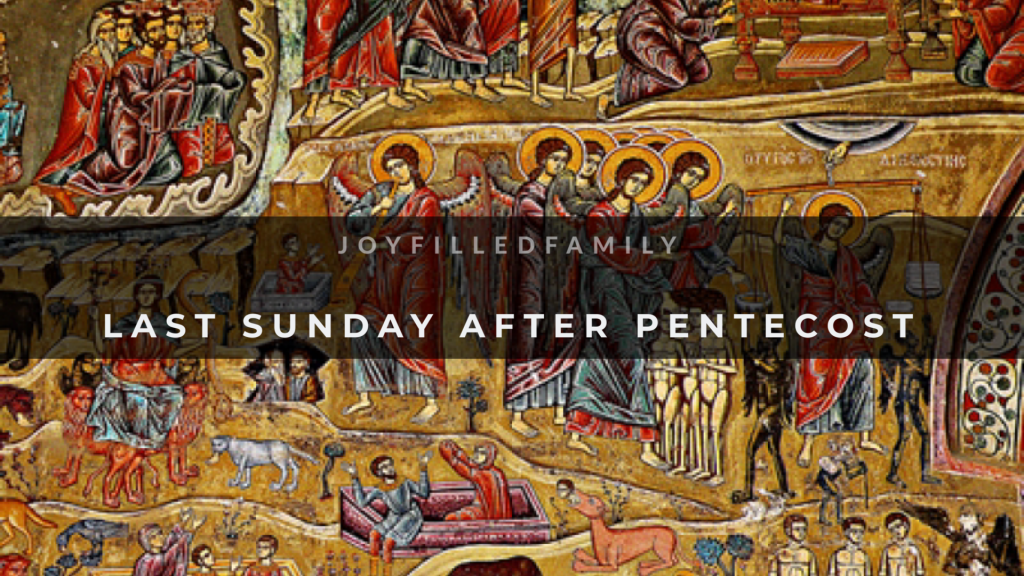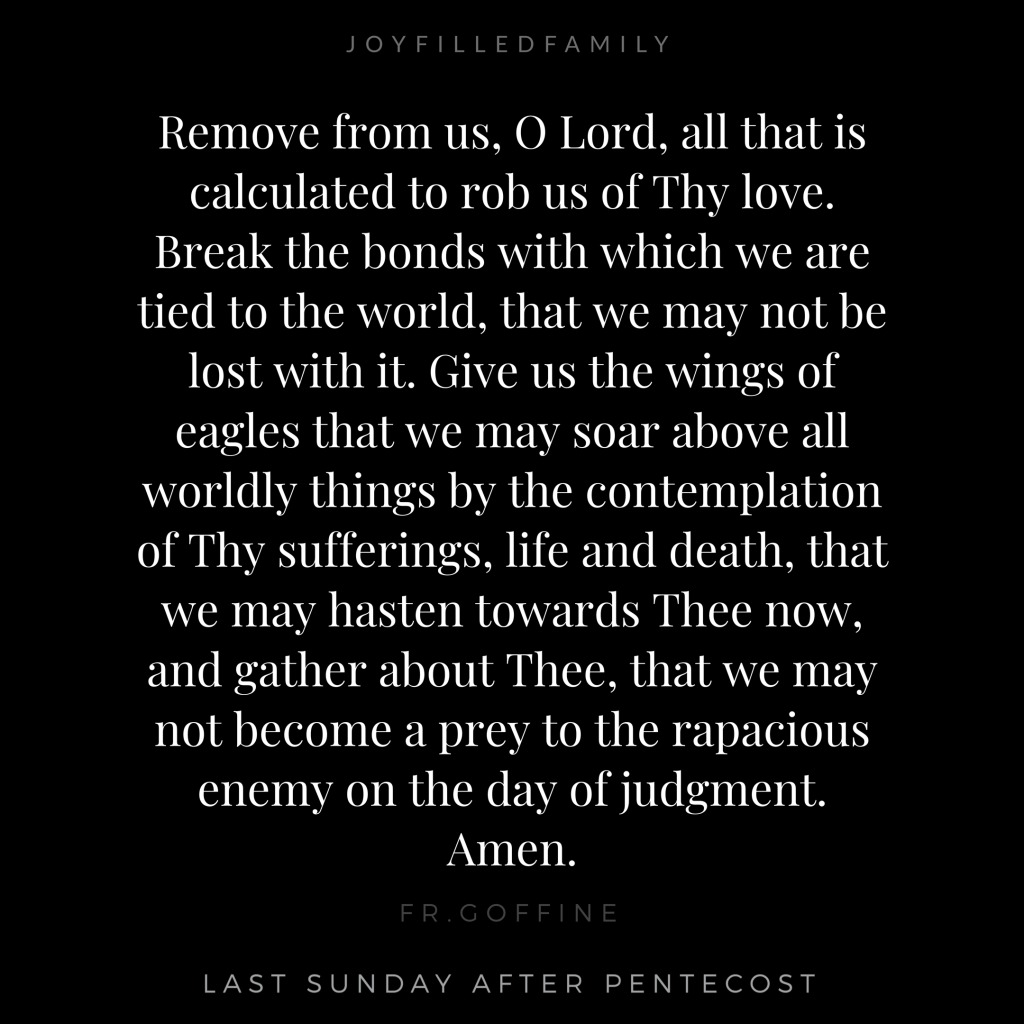REMINISCERE
The following is instruction from Fr. Leonard Goffine, The Church’s Year.
The Introit of this day’s Mass, which begins with the word Reminiscere, from which this Sunday derives its name, is the prayer of a soul begging God’s assistance, that she may sin no more:
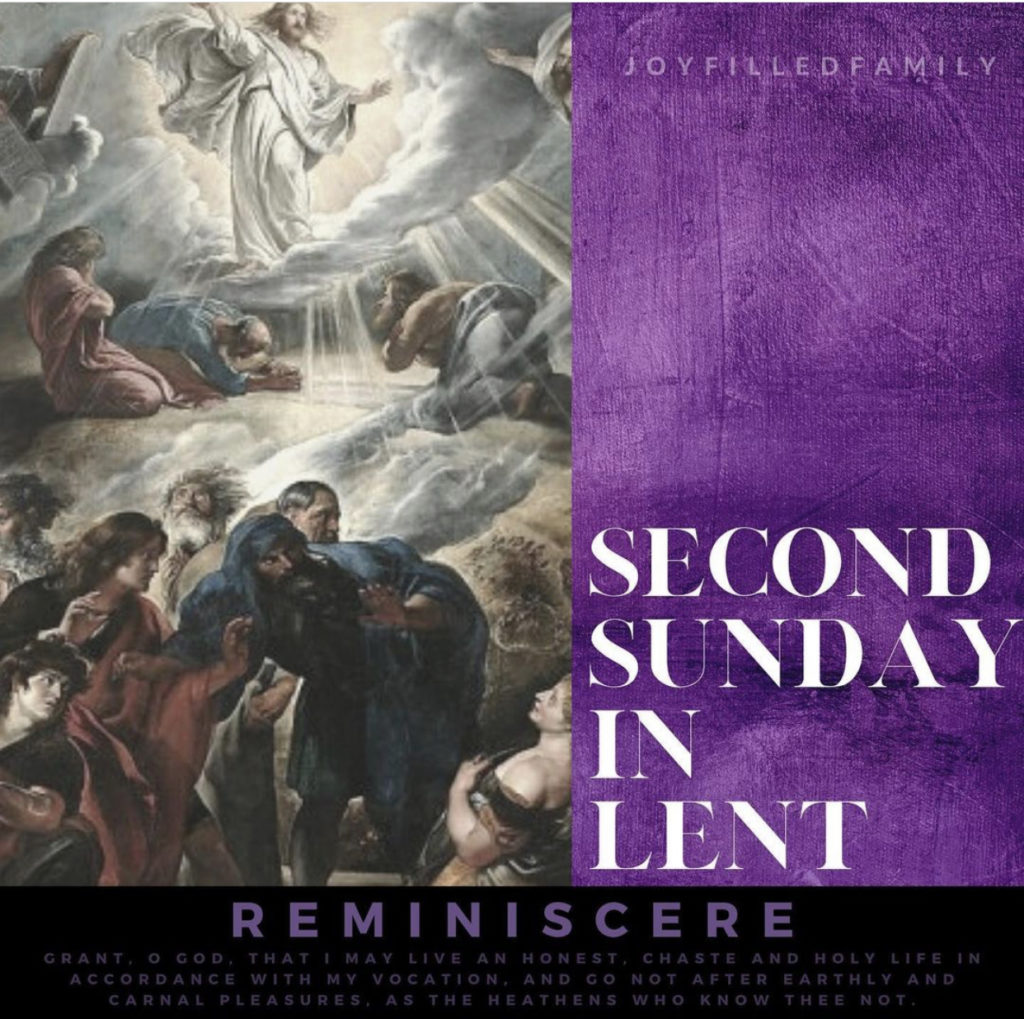
INTROIT Remember, O Lord, Thy compassions and Thy mercies, which are from the beginning, lest at any time our enemies rule over us: deliver us O God of Israel, from all our tribulations. To Thee O Lord, have I lifted up my soul: in Thee, O my God, I put my trust; let me not be ashamed. (Ps. XXIV.) Glory be to the Father, etc.
COLLECT O God, who seest us to be destitute of strength, keep us both inwardly and outwardly; that we may be defended in the body from all adversities, and cleansed in our mind from all evil thoughts. Through our Lord, etc.
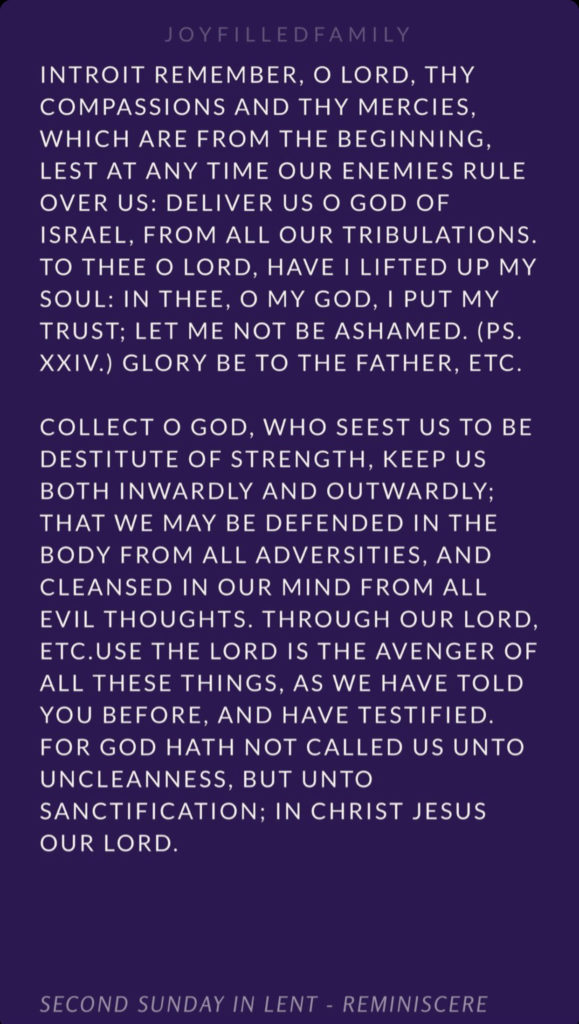
EPISTLE (I Thess. IV. 1-7.) Brethren, we pray and beseech you in the Lord Jesus, that as you have received of us, how you ought to walk, and to please God, so also you would walk, that you may abound the more. For you know what precepts I have given to you by the Lord Jesus. For this is the will of God, your sanctification; that you should abstain from fornication; that every one of you should know how to possess his vessel in sanctification and honor; not in the passion of lust, like the Gentiles that know not God: and that no man over-reach nor circumvent his brother in business; because the Lord is the avenger of all these things, as we have told you before, and have testified. For God hath not called us unto uncleanness, but unto sanctification; in Christ Jesus our Lord.
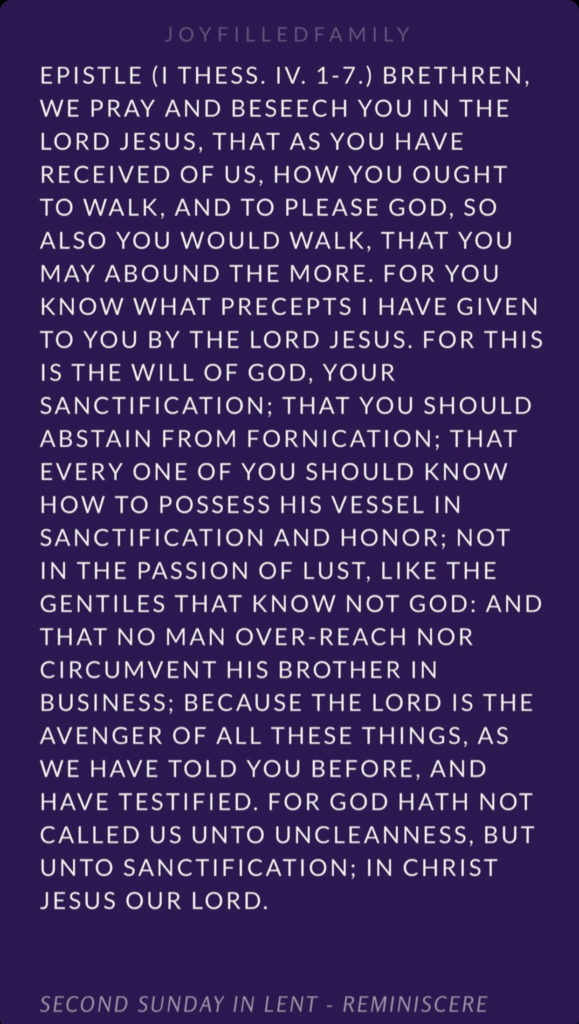
EXPLANATION From these words we see, that the great Teacher of Nations as carefully showed the Christian congregations the sanctity of their calling, as he labored to lead them from the blindness and abominations of heathenism.
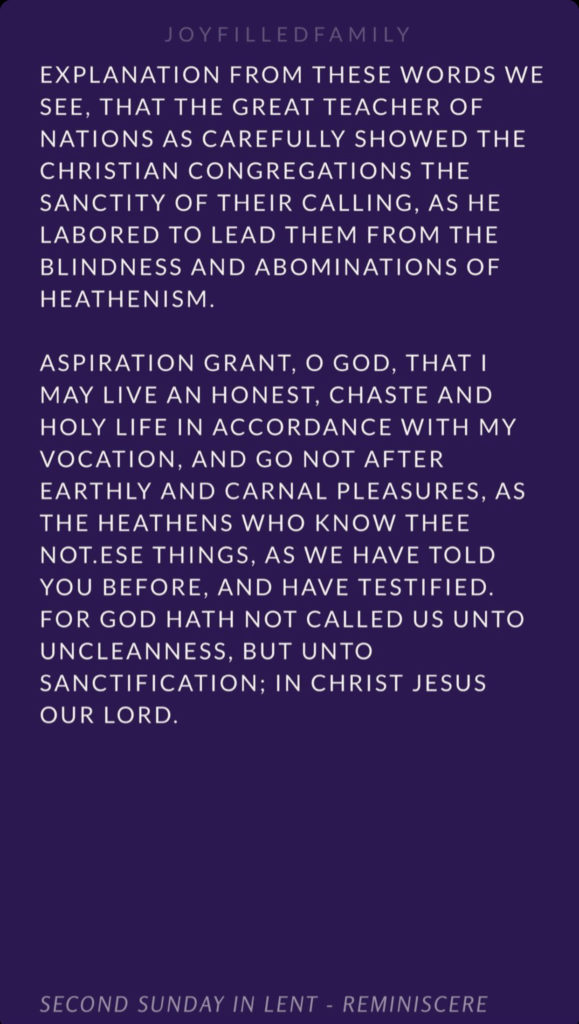
ASPIRATION Grant, O God, that I may live an honest, chaste and holy life in accordance with my vocation, and go not after earthly and carnal pleasures, as the heathens who know Thee not.
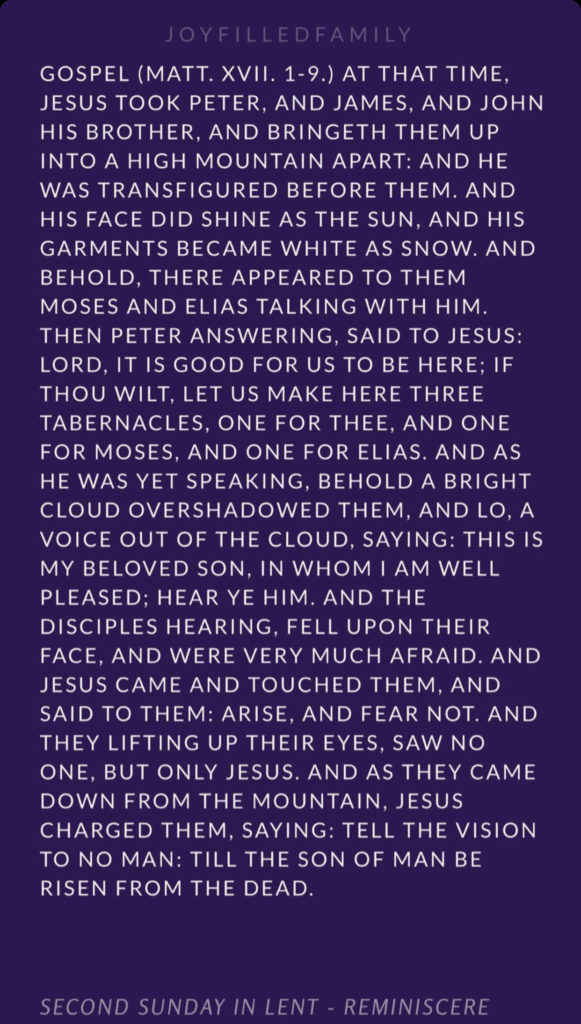
GOSPEL (Matt. XVII. 1-9.) At that time, Jesus took Peter, and James, and John his brother, and bringeth them up into a high mountain apart: and he was transfigured before them. And his face did shine as the sun, and his garments became white as snow. And behold, there appeared to them Moses and Elias talking with him. Then Peter answering, said to Jesus: Lord, it is good for us to be here; if thou wilt, let us make here three tabernacles, one for thee, and one for Moses, and one for Elias. And as he was yet speaking, behold a bright cloud overshadowed them, and lo, a voice out of the cloud, saying: This is my beloved Son, in whom I am well pleased; hear ye him. And the disciples hearing, fell upon their face, and were very much afraid. And Jesus came and touched them, and said to them: Arise, and fear not. And they lifting up their eyes, saw no one, but only Jesus. And as they came down from the mountain, Jesus charged them, saying: Tell the vision to no man: till the Son of Man be risen from the dead.
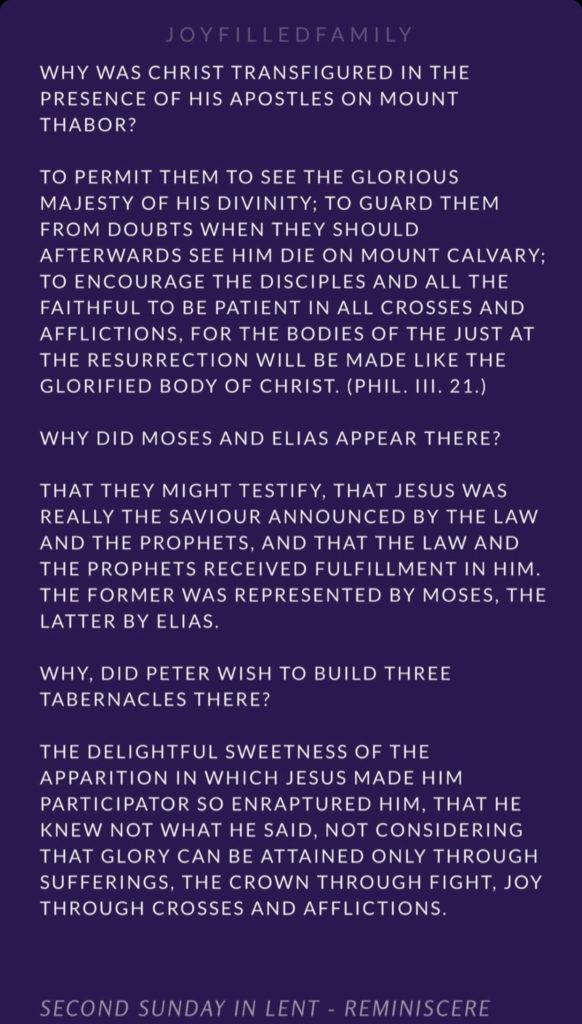
Why was Christ transfigured in the presence of His apostles on Mount Thabor?
To permit them to see the glorious majesty of His divinity; to guard them from doubts when they should afterwards see Him die on Mount Calvary; to encourage the disciples and all the faithful to be patient in all crosses and afflictions, for the bodies of the just at the resurrection will be made like the glorified body of Christ. (Phil. III. 21.)
Why did Moses and Elias appear there?
That they might testify, that Jesus was really the Saviour announced by the law and the prophets, and that the law and the prophets received fulfillment in Him. The former was represented by Moses, the latter by Elias.
Why, did Peter wish to build three tabernacles there?
The delightful sweetness of the apparition in which Jesus made him participator so enraptured him, that he knew not what he said, not considering that glory can be attained only through sufferings, the crown through fight, joy through crosses and afflictions.

ASPIRATION Draw us, O Jesus, to Thee, that by the contemplation of the sacred joys awaiting us, we, by Thy grace, may not be defeated in the spiritual contest, but conquer through Thy grace and carry off the unfading crown of victory.
